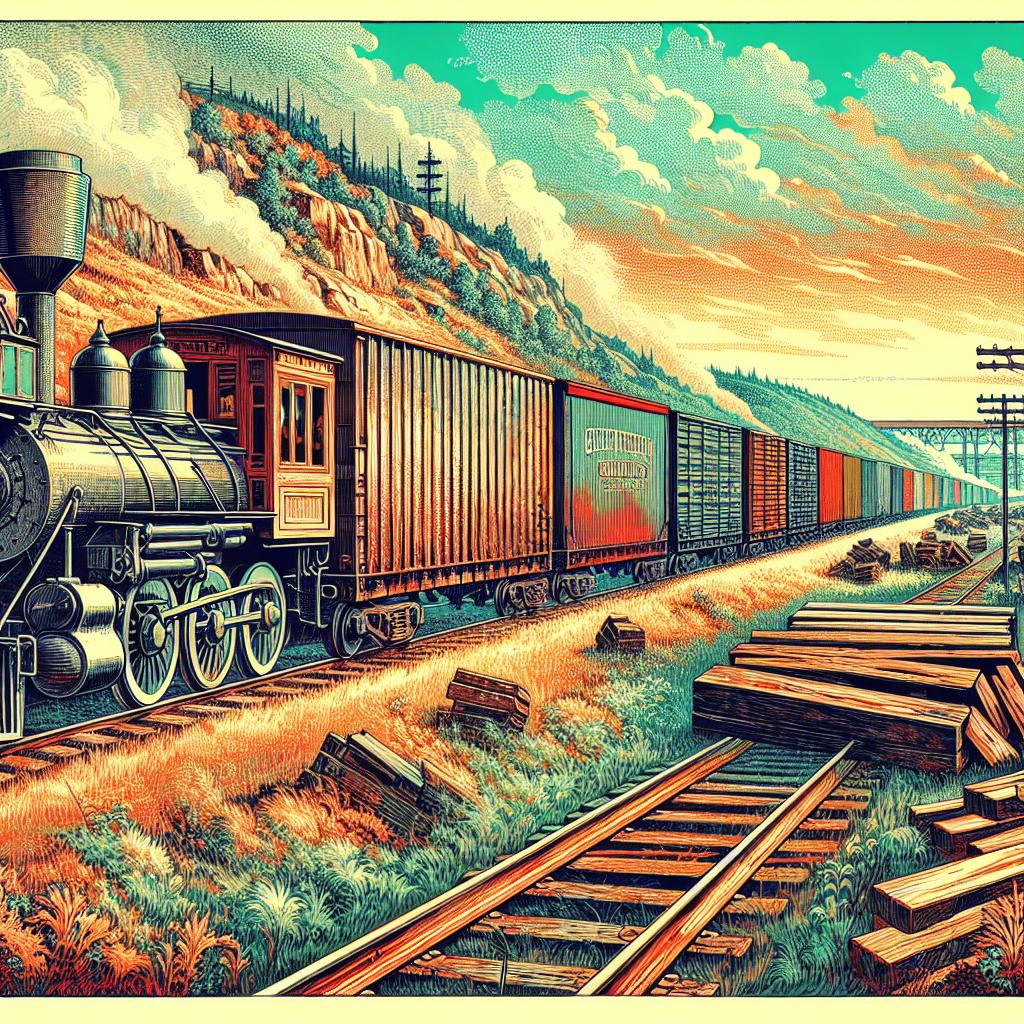The Current Crisis
Canada’s two largest freight railroads, Canadian Pacific Kansas City and Canadian National Railway, have recently brought the transportation industry to a standstill in the wake of a contract dispute. This unexpected shutdown has sent ripples through various sectors of the economy, drawing attention not just to the efficiency of rail transport but also to the fundamental rights of workers within an ever-evolving labor landscape.
This situation is more than just a business issue; it spans into essential themes of labor rights and corporate power. The question echoed in many minds during this crisis is: how far should workers go to protect their interests? The answer requires an understanding of historical struggles that have shaped labor movements across the globe.

Historical Context and Its Relevance
Labor disputes and strikes fundamental to labor rights movements are woven deeply into the fabric of Canada’s history. In many ways, the current situation reflects the profound struggles of the past, wherein workers have consistently fought for fair wages, reasonable working hours, and job security. The rights of workers, especially in vital sectors like transportation, are not just legal issues; they represent ethical ones that require continuous advocacy and negotiation.
The railroads have always played a crucial role in shaping the Canadian economy. From transporting grains to moving machinery essential for construction and manufacturing, these arteries of trade ensure that economic lifeblood flows smoothly. However, the relationship between the companies operating these railroads and their workforce has historically been fraught with tension. Employees often find themselves at odds with the corporations that employ them when contract agreements don’t align with their minimum expected conditions.
The Immediate Impact of the Shutdown
When freight railroads like Canadian Pacific Kansas City and Canadian National Railway cease operation, the immediate impact is felt throughout the Canadian economy. Businesses that rely on just-in-time deliveries, such as automotive manufacturers, food distribution centers, and many industrial sectors, experience delays and increased costs. In totality, the Canadian economy faces millions in potential losses tied to supply chain disruptions.
This halt has raised questions on whether the current labor policies and negotiation frameworks can effectively accommodate workers’ rights against powerful corporate interests. The resolution of such disputes often hangs on the delicate balance between the need for economic efficiency and the rights of those toiling within these industries.
Power Dynamics: Unions vs Corporations
Unions have long served as the backbone of worker advocacy, providing a collective voice for individuals who might otherwise feel powerless against corporate giants. Yet, the efficacy of these unions is often put to the test in negotiations. The current railway shutdown illuminates the challenges they face in balancing workers’ demands with the realities of economic pressures their respective companies encounter.
Discussions surrounding union membership have also evolved. As corporations tighten control over working conditions and wages, unions often find themselves needing to justify their relevance in modern labor negotiations to attract new members. The work of unions, therefore, appeals not only to current labor rights but also to nurturing future generations of workers who may need similar representation.
In negotiations, workers’ interests can sometimes clash with corporate realities, leading corporations to prioritize immediate financial impacts over employees’ dignity and conditions. This cultural backdrop reveals a stark dichotomy: when the workforce stands united under union representation, they acquire a significant voice against what can often seem like insurmountable corporate weight.
Corporate Accountability in the Rail Industry
In an age where many corporations are reevaluating their social responsibilities, the shutdown serves as a reminder that accountability must extend to fair treatment and dealings with employees. As competitors in a global economy demand sustainable practices, investment in workforce welfare should also rank among those essential standards.
The fallout from this situation might compel both the companies involved and policymakers to reconsider how they address infrastructure investments and labor relations. Such changes could foster an environment that nurtures both economic progress and meaningful worker protections.
The Path Forward: Striking a Balance
Ultimately, labor rights discussions cannot eclipse the essence of productive compromise. Educated discussions on solidarity among workers, negotiations that bring forth firm agreements, and most importantly, the ethical implications of corporate treatment of employees can bridge the divide between both sides.
This ongoing narrative challenges Canadians to ponder how much emphasis society places on labor rights vis-à-vis economic ambitions, aiming for the reconciliation of the two—a vision where both corporations can manage risks while respecting workers’ rights.
The union response to this rail shutdown, as well as public perception surrounding labor rights, will significantly shape the current landscape. Moreover, as the nation watches the resolution unfold, we stand at a crossroads, and our collective response will dictate whether this moment catalyzes a deeper social understanding of labor rights amidst economic imperatives, thus ensuring a more equitable and just future in one of the world’s most resource-rich nations.



